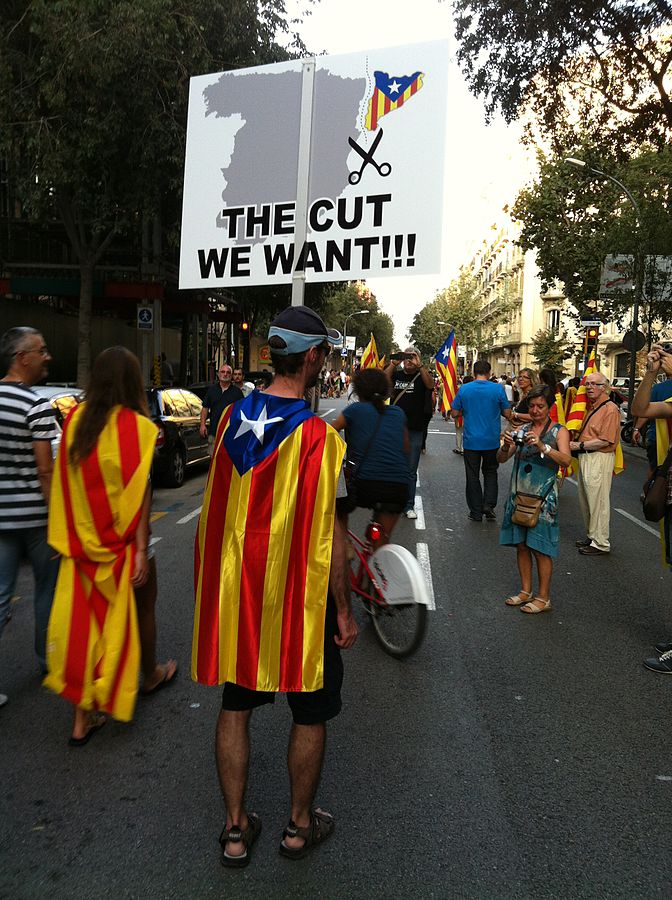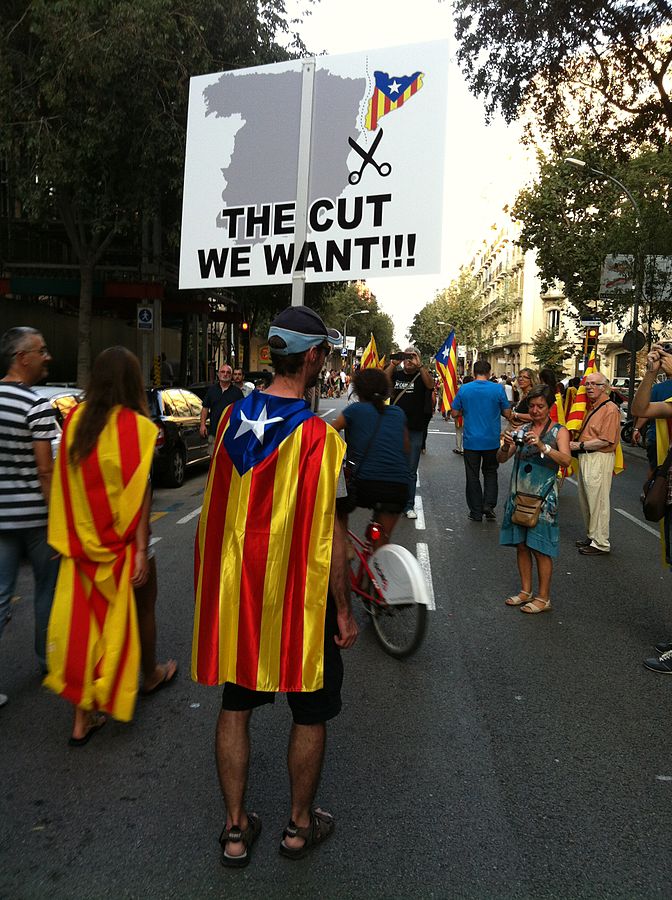
Kippelboy
The region has long been fighting for the preservation of its cultural identity. On Sunday, a referendum on independence was held in Catalonia, during which 90% of citizens voted to secede from the rest of the country. The turnout was 43%. The President of the Generalitat of Catalonia Carles Puigdemont said in a televised speech: "On this day of hope and suffering, the citizens of Catalonia defended their right to an independent republican state. The government that I am chairing will shortly be sending to the Parliament of Catalonia - the seat of concentration and expression of the sovereignty of our people - the results of the voting that was held to bring to completion the law envisaged in the referendum law." The central government of Spain said that it is not going to recognize the vote as legitimate.
But what happens if Catalonia declares independence from Spain? ING’s economist Geoffrey Minne writes: "Just like with Brexit, we believe that Catalonia’s detachment will not turn out to be good for it either - the region is doomed for a long period of uncertainty and, most likely, problems for the private sector ". The movement for the independence of Catalonia is largely political in nature: its supporters argue that the region must separate from Spain to gain prosperity and preserve traditions. ING, however, primarily considers the economic side of the issue.
Experts from ING report that the most obvious and likely consequence of the plebiscite will be a decrease in the consumer activity of Catalan farms: "The starting point in analyzing the impact of the consequences of this development on the behavior of consumers is the uncertainty that it generates. A recent poll conducted by the Center for Sociological Research Metroscopia showed that 62% of respondents in Catalonia stated that they are "worried" about the future of their region. In contrast to them, 31% of respondents said that they "are looking forward to" the changes. There’s just one step from fears to precautionary savings, and if about two-thirds of consumers decide to cut costs, this will mean a drop in demand from the private sector. And if anxiety panics, it can also lead to a massive withdrawal of deposits from the bank and control over the movement of capital. "
Uncertainty in the consumer sphere will be accompanied by uncertainty in the investment sphere, Minne says: "Uncertainty can be even more critical for business investors than for consumers, since any signals of political instability affect foreign investments much more than domestic ones." The announcement of independence from Spain means that Catalonia will automatically leave the European Union. Thus, its presence in a single European market will be another problem. Minne writes: "The majority of both foreign and Catalan companies are afraid to be cut off from the single European market. This can cause a delay or redirection of investments outside the region. Probably the companies that produce goods for export to the EU will suffer most. Over the past three years, the EU accounted for 65% of exports and 70% of investments in the economy of Catalonia."
In conclusion, Minne suggests that "from the economic point of view, Catalonia's independence can cost even more than a similar even once cost the UK": "It can be stated with certainty that the formation of the Catalan Republic is an expensive project, and the opportunity to slightly cut costs entirely depends on the good the will of the governments of other European countries (including Spain). It is still difficult to assess consequences of such an unprecedented event, but in the long term, the sovereignty of Catalonia will cost more than Brexit once did in the UK. "
source: businessinsider.com
But what happens if Catalonia declares independence from Spain? ING’s economist Geoffrey Minne writes: "Just like with Brexit, we believe that Catalonia’s detachment will not turn out to be good for it either - the region is doomed for a long period of uncertainty and, most likely, problems for the private sector ". The movement for the independence of Catalonia is largely political in nature: its supporters argue that the region must separate from Spain to gain prosperity and preserve traditions. ING, however, primarily considers the economic side of the issue.
Experts from ING report that the most obvious and likely consequence of the plebiscite will be a decrease in the consumer activity of Catalan farms: "The starting point in analyzing the impact of the consequences of this development on the behavior of consumers is the uncertainty that it generates. A recent poll conducted by the Center for Sociological Research Metroscopia showed that 62% of respondents in Catalonia stated that they are "worried" about the future of their region. In contrast to them, 31% of respondents said that they "are looking forward to" the changes. There’s just one step from fears to precautionary savings, and if about two-thirds of consumers decide to cut costs, this will mean a drop in demand from the private sector. And if anxiety panics, it can also lead to a massive withdrawal of deposits from the bank and control over the movement of capital. "
Uncertainty in the consumer sphere will be accompanied by uncertainty in the investment sphere, Minne says: "Uncertainty can be even more critical for business investors than for consumers, since any signals of political instability affect foreign investments much more than domestic ones." The announcement of independence from Spain means that Catalonia will automatically leave the European Union. Thus, its presence in a single European market will be another problem. Minne writes: "The majority of both foreign and Catalan companies are afraid to be cut off from the single European market. This can cause a delay or redirection of investments outside the region. Probably the companies that produce goods for export to the EU will suffer most. Over the past three years, the EU accounted for 65% of exports and 70% of investments in the economy of Catalonia."
In conclusion, Minne suggests that "from the economic point of view, Catalonia's independence can cost even more than a similar even once cost the UK": "It can be stated with certainty that the formation of the Catalan Republic is an expensive project, and the opportunity to slightly cut costs entirely depends on the good the will of the governments of other European countries (including Spain). It is still difficult to assess consequences of such an unprecedented event, but in the long term, the sovereignty of Catalonia will cost more than Brexit once did in the UK. "
source: businessinsider.com


















